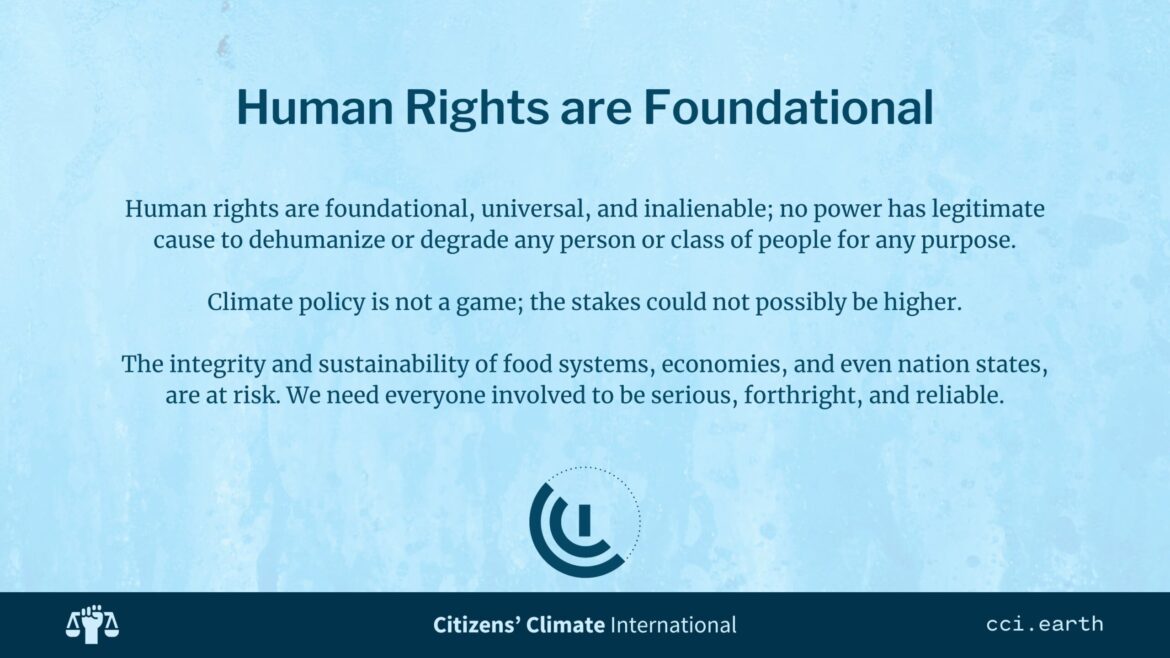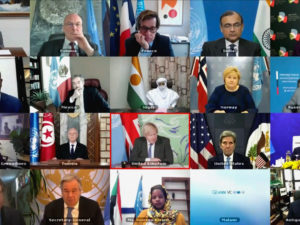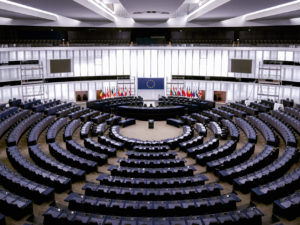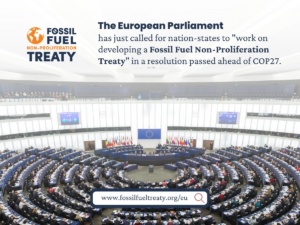
STATEMENT OF PRINCIPLES
Human Rights are Foundational
Climate policy is not a game; the stakes could not possibly be higher. The future integrity of food systems, local and national economies, and even the sustainability of nation states, are all at risk. There is strong evidence that even the wealthiest nations could collapse under the devastation of unchecked climate change.
This is serious work. We need everyone involved to be serious, forthright, and reliable.
This is why, at CCI, we remind ourselves that a livable future is a human right. Legitimacy is rooted not in claims to power, but in honest work toward safe, livable, dignified conditions for those who must live with an institution’s decisions.
In December 1948, the Universal Declaration of Human Rights was adopted. This foundational text for all international law states as its first principle that:
“recognition of the inherent dignity and of the equal and inalienable rights of all members of the human family is the foundation of freedom, justice and peace in the world…”
Article 1 reads clearly:
“All human beings are born free and equal in dignity and rights. They are endowed with reason and conscience and should act towards one another in a spirit of brotherhood.”
Article 6 specifies:
“Everyone has the right to recognition everywhere as a person before the law.”
Article 7 adds detail:
“All are equal before the law and are entitled without any discrimination to equal protection of the law. All are entitled to equal protection against any discrimination in violation of this Declaration and against any incitement to such discrimination.”
The entire Declaration is foundational to the rule of law, and to the contemporary collaborative quest for international peace and security.
We highlight these few passages, because they make clear that all nations have signed up to the implicit principle that:
Human rights are foundational, universal, and inalienable, and no power has legitimate cause to dehumanize or degrade any person or class of people for any purpose.
CCI stands by this principle—because it is sensible, morally unimpeachable, and legally established, and because it is inconceivable that any entity not standing by this principle could have legitimacy in any sphere. It is the very least we can ask of any government that it honor the primacy of basic human rights—which it has already agreed to establish as the foundation of all of its dealings.
CCI extends this recognition to the sphere of climate action: Climate change is the result of political and economic structures that invest in, welcome, and condone pollution for profit. Without the tacit permission to violate the rights of innocent third parties, we would not have a pollution crisis, and we would not have a climate crisis driven by global heating pollution.
The Universal Declaration of Human Rights closes with Article 30, which specifically prohibits any effort to degrade or destroy human rights:
“Nothing in this Declaration may be interpreted as implying for any State, group or person any right to engage in any activity or to perform any act aimed at the destruction of any of the rights and freedoms set forth herein.”
What credibility can any nation have on its climate commitments that does not honor these foundational rights?
The climate crisis touches all aspects of human experience, and governments have duties to their people that transcend the technical boundaries of any particular ideology, policy choice, or economic imperative. Legitimacy and leadership must be rooted in recognition of universal rights, so climate crisis response can succeed in creating sustainably livable conditions for all of humankind.








